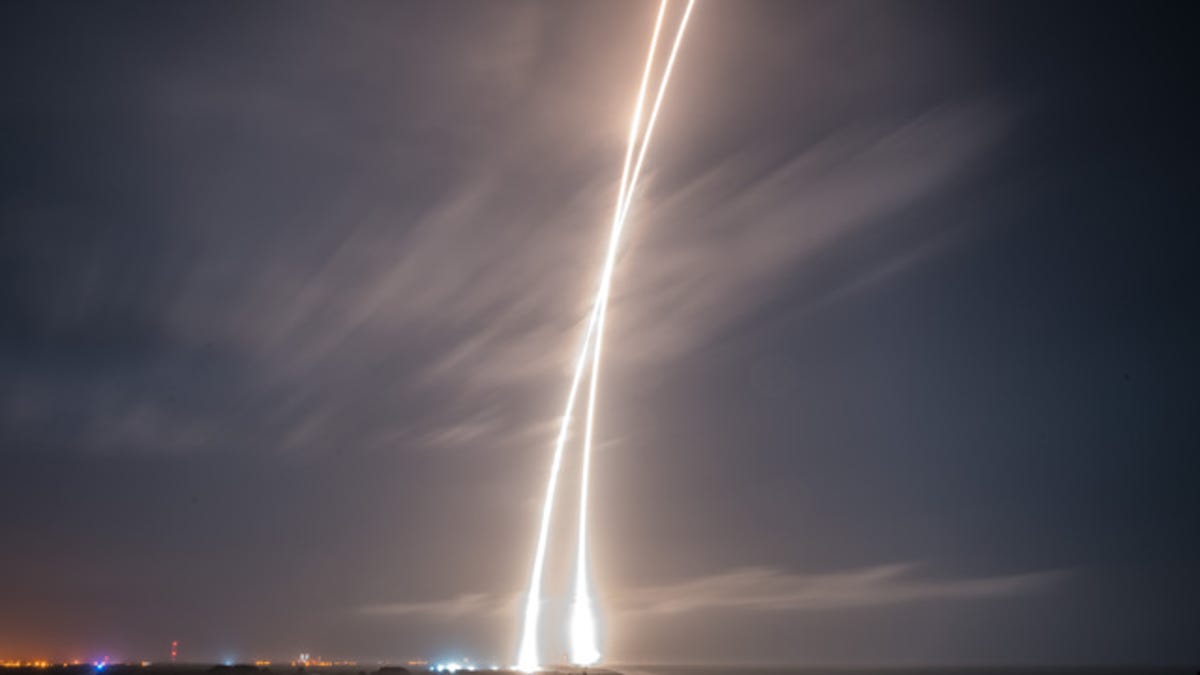Watch SpaceX launch and land a rocket for the first time at Cape Canaveral
Elon Musk's company follows up an explosion earlier this year with the first successful landing of a Falcon 9 rocket after launching 11 satellites into space.
For decades, Cape Canaveral served as the iconic launch site for countless missions to space, and now thanks to SpaceX, the legendary facility has also seen a rocket landing shortly after launching a payload into space.
On Monday, SpaceX launched a Falcon 9 rocket from the Florida site to deliver a payload of 11 satellites to low Earth orbit. But the real payoff came when the rocket returned to Earth, landing safely and vertically on a landing pad not far from where it had launched only 10 minutes earlier.
The launch also marked the first return to flight for SpaceX since the explosion of one of the company's re-supply missions bound for the International Space Station.
Landing rockets after launch so they can be re-used in late launches has been a major goal of SpaceX and an important part of the company's aim of driving down the price of space launches. Historically, the rocket boosters for most space launches have fallen into the ocean, never to be used again.
The company's earlier attempts at test-landing its reusable rockets on an unmanned drone barge in the ocean ended in explosion as the rocket either came in too hot or tipped over after landing.
In the video below (starting at around 32:30 in), though, you can see the SpaceX Falcon 9 descend and stick the landing, a moment followed by an eruption of cheers at the company's headquarters.
The successful landing comes just weeks after Blue Origin, a space company headed by Amazon founder Jeff Bezos, surprised the world by sharing news of its own successful landing of its New Shepherd rocket after being launched to the edge of space and returning.
To be fair to SpaceX and competing 21st century digital tycoon Elon Musk, it should be noted that the Falcon 9 and New Shepherd are designed for different things (the Falcon 9 for larger payloads and missions into deeper space, New Shepherd for taking space tourists on brief suborbital flights) and some have argued that this makes the Falcon 9 somewhat harder to land.
Whether or not that's true, Jeff Bezos just couldn't help himself from delivering a backhanded compliment on Twitter for what he clearly sees as Musk and SpaceX's second place finish in the race to recycle rockets.


